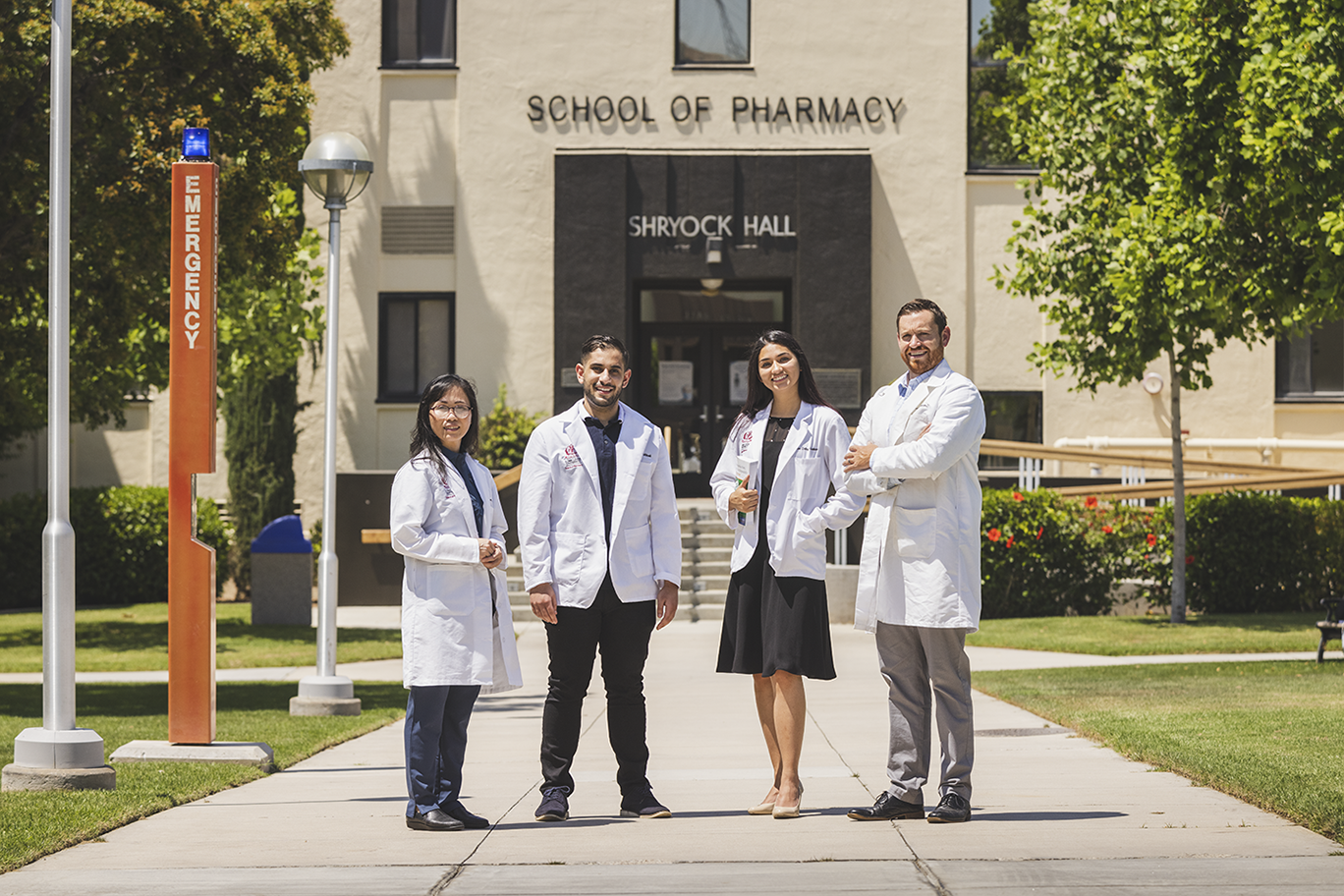
Loma Linda University School of Pharmacy (LLUSP) celebrates 20 years of providing excellence in pharmacy education this month. The School has offered its doctor of pharmacy program for two decades, and its graduates are a part of a global network of more than 1,000 alumni.
“Our success is driven by a committed team of educators and administrators,” said Michael Hogue, PharmD, FAPhA, FNAP, dean of LLU School of Pharmacy. “Seven of our nearly 50 faculty and staff have been with LLUSP for at least 15 years.
“We continue to educate future pharmacists in a fully-integrated environment developing competent, compassionate pharmacists whose professionalism encompass the physical, mental, social and spiritual dimensions of health,” Hogue added.
HERE’S A LOOK BACK AT THE SCHOOL’S MILESTONES:
1995
- Loma Linda University Board of Trustees votes to establish a School of Pharmacy.
2002-2004
- LLU receives formal authorization from WASC to offer its doctor of pharmacy (PharmD) program.
- School of Pharmacy is housed in West Hall and welcomes its first class of 34 students.
- Accreditation Council for Pharmacy Education (ACPE) confers candidate status upon LLUSP.
2006
- ACPE grants full accreditation for PharmD program.
- LLUSP graduates its first student cohort.
2011-2015
- LLU Schools of Pharmacy and Religion partner to offer pharmacy students a dual degree: master of arts degree in Ethics.
- School of Pharmacy moves into the newly renovated Shryock Hall on campus.
- LLU Schools of Pharmacy and Allied Health Professions partner to offer pharmacy students a dual degree: master of arts degree in Health Informatics.
2020-2022
- School of Pharmacy faculty organized student-based mobile vaccine clinics in vulnerable communities throughout Southern California.
- LLU Schools of Pharmacy and Allied Health Professions partner to offer pharmacy students a dual degree: master of arts degree in Health Professions Education.
- Dean appointed to CDC’s Advisory Committee on Immunization Practices.
- ACPE’s Board of Directors grants continued full accreditation to LLUSP through June 30, 2029, based on the School’s compliance of 25 accreditation standards. This achievement represents the maximum accreditation term ACPE awards to colleges/schools of pharmacy.
- Faculty recognized nationally for immunization efforts and awarded for vaccine work in community. Students recognized nationally for community response during pandemic.
- LLUSP receives federal grant of $3.4 million to establish nation’s first Hispanic Center of Excellence in Pharmacy.
FUTURE OF PHARMACY
Nation’s first Hispanic Center of Excellence in Pharmacy
As a Hispanic Center of Excellence, the School will provide educational and training opportunities for the Latinx community, increase Hispanic representation among pharmacists, and address minority health issues throughout the Inland Empire.
Innovative teaching
The School will continue to support innovative teachers, like Ike De La Pena, PhD, pharmaceutical and administrative sciences professor. De La Pena leverages the social media platform TikTok as a learning tool in his classroom and beyond. His social media videos combine Bible verses with ways to remember pharmaceuticals and their attributes. De La Pena has a substantial following on TikTok and is even followed by students attending other schools of pharmacy, according to Hogue. “They use his videos to learn material for their own pharmaceutical programs,” he said.
NCI-designated Comprehensive Cancer Center
The School is actively engaged in the institution’s efforts to establish an NCI-designated Comprehensive Cancer Center.
Pharmacy Practice
A new pharmacy practice outpatient group based within the School is being established.
Curriculum
A brand-new competency-based curriculum is being designed for implementation in fall of 2025, the same time ACPE’s new accreditation standards take effect.
Certifications
The School will offer special certifications to students and alumni to enhance continuing education offerings.
“Pharmacists are firmly situated in this institution and many others in our region as essential members of the healthcare team,” Hogue said. “While our profession has its challenges, the future is bright, and we are intentionally creating a preferred future.”
